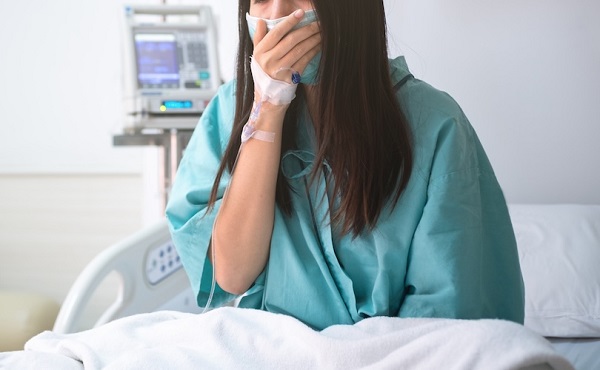COVID-19
Ontario brings back mask mandates to long-term care homes
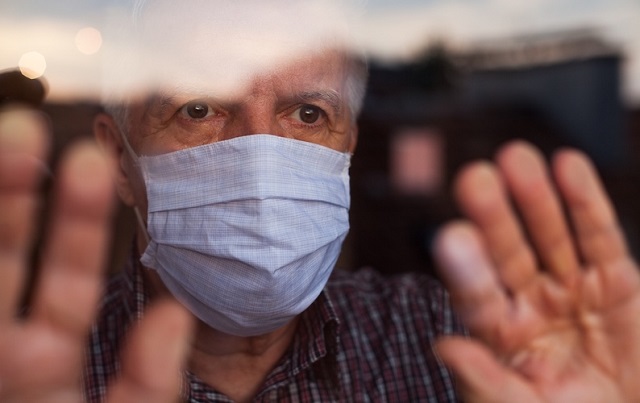
From LifeSiteNews
The Ontario Ministry of Long-Term Care has mandated masking for students, support workers, and volunteers when they are in resident areas indoors in long-term facilities
Mask mandates have returned to long-term care facilities in Ontario, as cases increase despite a so-called “safe and effective” jab.
Beginning on November 7, the Ministry of Long-Term Care mandated masks in all licensed long-term care facilities in Ontario, in accordance with the advice of Dr. Kieran Moore, the chief medical officer of health.
“Recent trends have shown a moderate to high level of community transmission of COVID-19 and an increase in COVID-19 outbreaks in LTCHs, with an increased risk of hospitalization amongst residents,” Kelly McAslan, assistant deputy minister, long-term care operations division, said in the memo, obtained by the Canadian Broadcasting Corporation (CBC).
The memo mandates masking for students, support workers, and volunteers when they are in resident areas indoors. Additionally, it recommends that visitors and caregivers mask in resident areas indoors, with the exception of when they are alone with residents in their rooms or when they are eating with residents in shared spaces.
According to Public Health Ontario, from August 27 to October 28, long-term care facilities saw 459 COVID-19 cases among residents, with 181 people hospitalized. A total of 106 residents were reported to have died.
During that time, 1,698 staff members were diagnosed with COVID-19, but there were not deaths or hospitalizations.
The report did not disclose if the residents had been jabbed against COVID, but it is likely that they would have received the experimental shot, as it was mandated in long-term care facilities until March 14, 2022.
Dr. Samir Sinha, director of geriatrics at Sinai Health System in Toronto, promoted the experimental COVID shot for residents in comments to CBC, despite evidence that it provides little to no immunity against COVID.
Sinha also celebrated the mask mandates, ignoring overwhelming evidence that masks are ineffective in preventing transmission of COVID.
Masks have been slowly returning to Ontario after months of mainstream media publishing stories alleging that COVID is returning this fall. In August, the CBC published 18 COVID-related stories in just two days.
The leader of the People’s Party of Canada (PPC) Maxime Bernier, who himself went to jail for fighting COVID mandates, recently warned Canadians to “not comply” with any future dictates should they be enacted again by government officials.
CBC recently admitted that brining back masks would be difficult and likely opposed by many Canadians, suggesting “there would be a revolt” if lockdowns were reinstated.
Since August, many Ontario hospitals have enforced mask mandates, including the Kingston Health Sciences Centre, the Ottawa General Hospital, Ottawa’s Queensway Carleton Hospital, and Perth and Smiths Falls District Hospital.
The mask mandate is being imposed despite overwhelming evidence that masks are not effective in preventing the spread of COVID and can cause a sundry of health issues, as LifeSiteNews has reported.
Among that evidence is the U.S. Centers for Disease Control & Prevention’s (CDC) September 2020 admission that masks cannot be counted on to keep out COVID when spending 15 minutes or longer within six feet of someone, and a May 2020 study published by the peer-reviewed CDC journal Emerging Infectious Diseases that “did not find evidence that surgical-type face masks are effective in reducing laboratory-confirmed influenza transmission, either when worn by infected persons (source control) or by persons in the general community to reduce their susceptibility.”
In May 2021, another study found that, though mandates were largely followed, usage did not yield the expected benefits. “Mask mandates and use (were) not associated with lower SARS-CoV-2 spread among U.S. states” from March 2020 to March 2021. In fact, the researchers found the results to be a net negative, with masks increasing “dehydration … headaches and sweating and decreas[ing] cognitive precision” and interfering with communication, as well as impairing social learning among children.
More than 170 studies have found that masks have been ineffective at stopping COVID and have instead been harmful, especially to children.
COVID-19
Freedom Convoy leader Tamara Lich says ‘I am not to leave the house’ while serving sentence

From LifeSiteNews
‘I was hoping to be able to drop off and pick up my grandsons from school, but apparently that request will have to go to a judge’
Freedom Convoy leader Tamara Lich detailed her restrictive house arrest conditions, revealing she is “not” able to leave her house or even pick up her grandkids from school without permission from the state.
Lich wrote in a X post on Wednesday that this past Tuesday was her first meeting with her probation officer, whom she described as “fair and efficient,” adding that she was handed the conditions set out by the judge.
“I was hoping to be able to drop off and pick up my grandsons from school, but apparently that request will have to go to a judge under a variation application, so we’ll just leave everything as is for now,” she wrote.
Lich noted that she has another interview with her probation officer next week to “assess the level of risk I pose to re-offend.”
“It sounds like it’ll basically be a questionnaire to assess my mental state and any dangers I may pose to society,” she said.
While it is common for those on house arrest to have to ask for permission to leave their house, sometimes arrangements can be made otherwise.
On October 7, Ontario Court Justice Heather Perkins-McVey sentenced Lich and Chris Barber to 18 months’ house arrest after being convicted earlier in the year convicted of “mischief.”
Lich was given 18 months less time already spent in custody, amounting to 15 1/2 months.
As reported by LifeSiteNews, the Canadian government was hoping to put Lich in jail for no less than seven years and Barber for eight years for their roles in the 2022 protests against COVID mandates.
Interestingly, Perkins-McVey said about Lich and Barber during the sentencing, “They came with the noblest of intent and did not advocate for violence.”
Lich said that her probation officer “informed me of the consequences should I breach these conditions, and I am not to leave the house, even for the approved ‘necessities of life’ without contacting her to let her know where I’ll be and for how long,” she wrote.
“She will then provide a letter stating I have been granted permission to be out in society. I’m to have my papers on my person at all times and ready to produce should I be pulled over or seen by law enforcement out and about.”
Lich said that the probation officer did print a letter “before I left, so I could stop at the optometrist and dentist offices on my way home.”
She said that her official release date is January 21, 2027, which she said amounts to “1,799 days after my initial arrest.”
As reported by LifeSiteNews, Lich, reflecting on her recent house arrest verdict, said she has no “remorse” and will not “apologize” for leading a movement that demanded an end to all COVID mandates.
LifeSiteNews reported that Conservative Party leader Pierre Poilievre offered his thoughts on the sentencing, wishing them a “peaceful” life while stopping short of blasting the sentence as his fellow MPs did.
In early 2022, the Freedom Convoy saw thousands of Canadians from coast to coast come to Ottawa to demand an end to COVID mandates in all forms. Despite the peaceful nature of the protest, Trudeau’s government enacted the never-before-used Emergencies Act (EA) on February 14, 2022.
COVID-19
The Trials of Liberty: What the Truckers Taught Canada About Power and Protest

Half the country still believes the convoy was a menace; the other half thinks it was a mirror that showed how fragile our freedoms had become.
This Thanksgiving I am grateful for many things. The truckers who stood up to injustice are among them.
When the first rigs rolled toward Ottawa in January 2022, the air was sharp, but not as sharp as the mood of the men and women behind the wheels. They were not radicals. Seeing a CBC a campaign of disinformation about them begin as soon as their trek started, even when Ottawa political operatives hadn’t yet heard, I started following several of them on their social media.
They were truckers, small business owners, independent contractors, and working Canadians who had spent two years hauling the essentials that kept a paralyzed nation alive. They were the same people politicians, including Prime Minister Trudeau, had called “heroes” in 2020. By 2022, they had become “threats.”
The Freedom Convoy was born from exhaustion with naked hypocrisy. The federal government that praised them for risking exposure on the road now barred the unvaccinated from crossing borders or even earning a living. Many in provincial governments cheered Ottawa on. The same officials who flew to foreign conferences maskless or sat in private terraces to dine, let’s recall, still forced toddlers to wear masks in daycare. Public servants worked from home while police fined citizens for walking in parks.
These contradictions were not trivial; they were models of tyrannical rule. They told ordinary people that rules were for the ruled, not for rulers.
By late 2021, Canada’s pandemic response had hardened into a hysterical moral regime. Compliance became a measure of virtue, not prudence. Citizens who questioned the mandates were mocked as conspiracy theorists. Those who questioned vaccine efficacy were treated as fools; those who refused vaccination were treated as contagious heretics. Even science was no longer scientific. When data showed that vaccines did not prevent transmission, officials changed definitions instead of policies. The regime confused authority with truth. One former provincial premier just this week was still hailing the miracle of “life-saving” COVID vaccines.
For truckers, the breaking point came with the federal vaccine mandate for cross-border transport. Many had already complied with provincial rules and workplace testing. Others had recovered from COVID and had natural immunity that the government refused to recognize. To them, the new rule was not about safety; it was about humiliation. It said, “Obey, or you are unfit to work.”
So they drove.
Donna Laframboise, one of the rare journalists who works for citizens instead of sponsors, described the convoy in her book Thank You, Truckers! with gratitude and awe. She saw not a mob but a moral statement. She showcased for us Canadians who refused to live by lies. Their horns announced what polite society whispered: the emergency had become a creepy habit, and the habit had become a tool of control.
When the convoy reached Ottawa, it was messy, loud, and human. There was singing, prayer, laughter, dancing and some foolishness, but also remarkable discipline. For three weeks, amid frigid temperatures and rising tension, there were no riots, no arsons, no looting. In a country that once prized civility, that should have earned respect.
Instead, it attracted the media’s and government’s contempt.
The Trudeau government, rattled by its own public failures, sprung to portray the protest as a national security threat. Ministers invoked language fit for wartime. The Prime Minister, who had initially fled the city claiming to have tested positive, returned to declare that Canadians were under siege by “racists” and “misogynists.” The accusations were as reckless as they were false. The government’s real grievance was not chaos but defiance.
Then came the Emergencies Act. Designed for war, invasion, or insurrection, it was now deployed against citizens with flags and thermoses. Bank accounts were frozen without charge or trial. Insurance policies were suspended. Police weilding clubs were unleashed against unarmed citizens. The federal government did not enforce the law; it improvised it.
A faltering government declared itself the victim of its citizens. The Emergency declaration was not a reaction to danger; it was a confession of political insecurity. It exposed a leadership that could not tolerate dissent and recast obedience for peace.
Haultain Research is a reader-supported publication.
To receive new posts, express your gratitude and support our work, consider becoming a a paid subscriber.
The convoy’s organizers, who kept the protest largely peaceful, were arrested and prosecuted as though they had plotted sedition. They were charged for holding the line, not for breaking it. The state’s behaviour was vindictive, not judicial. Prosecutors went along with it, and so did courts.
In a healthy democracy, such political trials would have shaken Parliament to its core. Legislators would have demanded justification for the use of emergency powers. The press would have asked precisely which law had been broken. Citizens would have debated the limits of government in times of fear, times which seem to continue just under the radar.
Not much of that happened.
Canada’s institutions have grown timid. The press is subsidized and more subservient. The courts happily defer to the administrative state. Law enforcement has learned to follow politics before principle. Academics have been lost for about generation. Under such conditions, how can citizens object to unscientific and coercive policies? What options remain when every channel of dissent—media, science, judiciary, and law enforcement—is captured or cowed?
The convoy’s protest, let’s remember, was not the first major disruption in the Trudeau years. A year earlier, Indigenous activists blocked rail lines and highways in solidarity with Wet’suwet’en hereditary chiefs opposed to a pipeline. The blockades cost the economy millions. They were called “a national conversation.” Few arrests, no frozen accounts, no moral panic.
In 2020, Black Lives Matter marches were cheered by politicians and news anchors. Some protests were peaceful, others destructive. Yet they were treated as expressions of justice, not extremism.
Even today, pro-Hamas Palestinian demonstrations that include violence and intimidation of Jewish citizens are tolerated with a shrug. The police stand back, bring them coffee, citing “the right to protest.”
Why, then, was the Freedom Convoy treated as a crisis of state?
In a liberal democracy, protest is not rebellion. It is a civic instrument, a reminder that authority is contingent. When a government punishes peaceful protest because it disapproves of the message, it turns democracy into décor.
The trials of the convoy organizers are therefore not about law but about legitimacy. Each conviction signals that protest is permitted only when it pleases the powerful. This is the logic of every soft tyranny: it criminalizes opposition while decorating itself with the vocabulary of rights. I see this daily in Nicaragua, my native land.
The truckers’ protest revealed what the pandemic concealed. The COVID regime was unscientific and incoherent. It punished truckers who worked alone in their cabs while allowing politicians to mingle maskless at conferences. It barred unvaccinated Canadians from air travel but allowed infected citizens to cross borders with the proper paperwork. It closed playgrounds and churches while keeping liquor stores open.
These contradictions were not mistakes; they were instruments of obedience. Each absurd rule tested how much submission people would endure.
The truckers said, “Enough.” I am grateful that they did.
For that, Chris Barber (Big Red) and Tamara Lich  are still being punished. Their trials have now concluded, save for possible appeals, yet their quiet defiance remains one of the few honest moments in recent Canadian history. It showed that courage is still possible, even the state seems to forbid reason.
are still being punished. Their trials have now concluded, save for possible appeals, yet their quiet defiance remains one of the few honest moments in recent Canadian history. It showed that courage is still possible, even the state seems to forbid reason.
The government’s response revealed the opposite: that fear, once politicized, is never surrendered willingly. The state that learned to rule through emergency will not soon unlearn it. They cling to its uses still.
Canada lives with the legacy of that winter today. The trials are finished, but the divisions persist. Half the country still believes the convoy was a menace; the other half thinks it was a mirror that showed how fragile our freedoms had become.
Trudeau’s government is no more, yet the spirit of his politics lingers. He did not create the divisions by accident. He cultivated them as a strategy of control. The country that left him behind is also less free, less trusting, and less united than it was before the horns sounded in Ottawa. Carney’s government is Trudeau’s heir.
The trials and sentencing measure the distance between the Canada we imagined and the one we inhabit.
The truckers’ convoy was imperfect, yet profoundly democratic. It stood for the right of citizens to say no to a government that had forgotten how to hear them. The echo of that refusal still moves down the Trans-Canada Highway. It is the sound of liberty idling in the cold, waiting for a green light that will not soon come.
This Thanksgiving, I am grateful for the abounding love and understanding in my life. I am grateful for my spirited children and their children. I am grateful for my nonagenarian father and for my siblings. I’m grateful for the legion of aunts, uncles, cousins, nieces and nephews on all sides of the family. I am grateful for loyal friendships and for my colleagues and coworkers who share the quest for a freer country. I’m grateful to my adoptive Alberta, and Albertans, also struggling to be strong and free.
I am grateful for the Truckers, wherever they came from, for their courage.
Haultain Research is a reader-supported publication.
To receive new posts, express your gratitude and support our work, consider becoming a a paid subscriber.
-

 Business2 days ago
Business2 days agoFord’s Whisky War
-

 Agriculture22 hours ago
Agriculture22 hours agoIs the CFIA a Rogue Agency or Just Taking Orders from a Rogue Federal Government?
-
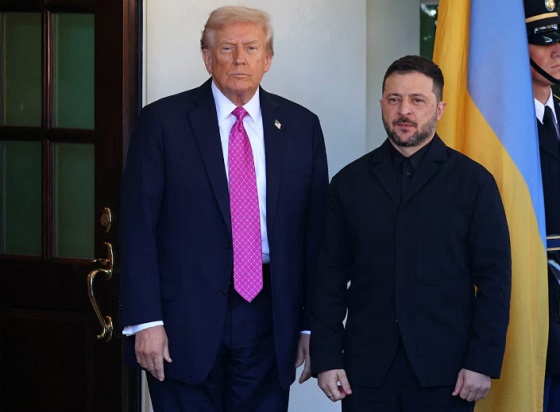
 Focal Points2 days ago
Focal Points2 days agoTrump Walks Back His Tomahawk Tease from Zelensky
-

 Automotive2 days ago
Automotive2 days ago$15 Billion, Zero Assurances: Stellantis Abandons Brampton as Trudeau-Era Green Deal Collapses
-

 Business1 day ago
Business1 day agoTrump Blocks UN’s Back Door Carbon Tax
-
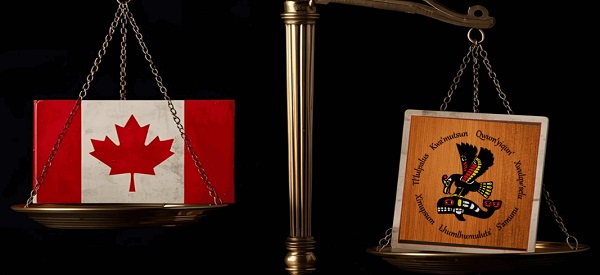
 Business1 day ago
Business1 day agoJudges are Remaking Constitutional Law, Not Applying it – and Canadians’ Property Rights are Part of the Collateral Damage
-

 Red Deer1 day ago
Red Deer1 day agoYour last minute election prep: Common Sense Red Deer talks to the candidates
-
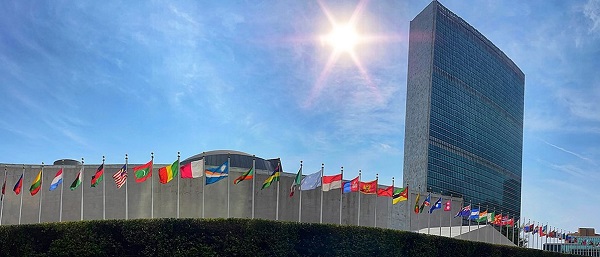
 Business1 day ago
Business1 day agoTrump Admin Blows Up UN ‘Global Green New Scam’ Tax Push, Forcing Pullback








